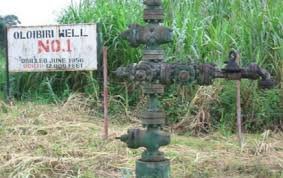Community Environment and Development Network (CEDEN) in partnership with Media Awareness and Justice Initiative (MAJI) are poised to combat adverse effects of oil exploration and climate change.
The two Civil Society Organisations (CSOs) hosted a capacity building workshop on Effective Eco-Management Enhancement and Biodiversity Promotion Communication.
The workshop which was held on Friday dwelt on restoring lost species and promoting sustainable ecological livelihoods in the Niger Delta.
The technical session anchored by Menidin Egbo, emphasized the restoration of the raffia forest ecology in Ekpadio swamp forest, Otuabagi community, in Ogbia Local Government Area.
Interestingly, Otuabagi hosts Oloibiri Oil Well 1, where Nigeria first struck oil in commercial quantities.
The thrust of the training was on the vital role of communication in biodiversity conservation and ecological management.
It highlighted the need for local actions supporting nature conservation and linking these efforts to global environmental sustainability goals, including the United Nations Sustainable Development Goals (SDGs).
Fundamental communication elements such as sender, message, channel, and feedback were outlined as critical for channeling environmental messages effectively through various media, including interpersonal communication, mass media, and social media.
Read Also:
- Bayelsa positioned to become industrial hub, says Gov Diri
- Bayelsa Police order mental evaluation for Inspector who brutally assaulted his children
- NGO condemns impeachment moves against Ewhrudjakpo in Bayelsa
Biodiversity was presented as the variety and abundance of plants and animals, with emphasis placed on the urgent need to address biodiversity loss, which threatens health and well-being worldwide.
The promotion of biodiversity was linked to protecting living organisms, sustainable use of natural resources, and protecting habitats to ensure resources for future generations.
The workshop equally addressed ecological management strategies for forest restoration, including planting native species and managing natural regeneration.
Climate change impacts on biodiversity were a focal point, emphasizing local capacity building to communicate climate risks like sea-level rise, greenhouse gas emissions, and global warming.
The importance of communication in stimulating community responses and governance for climate adaptation and mitigation was equally stressed.
The workshop recommended building local capacity through training, empowering women and youth, strengthening institutional frameworks, promoting collaboration among stakeholders, and enhancing media relations to maximize the effectiveness of climate and biodiversity advocacy at the community level.
According to Egbon, training is a critical step in enhancing local and global efforts to promote sustainable ecological management and biodiversity conservation through effective communication and community empowerment.






